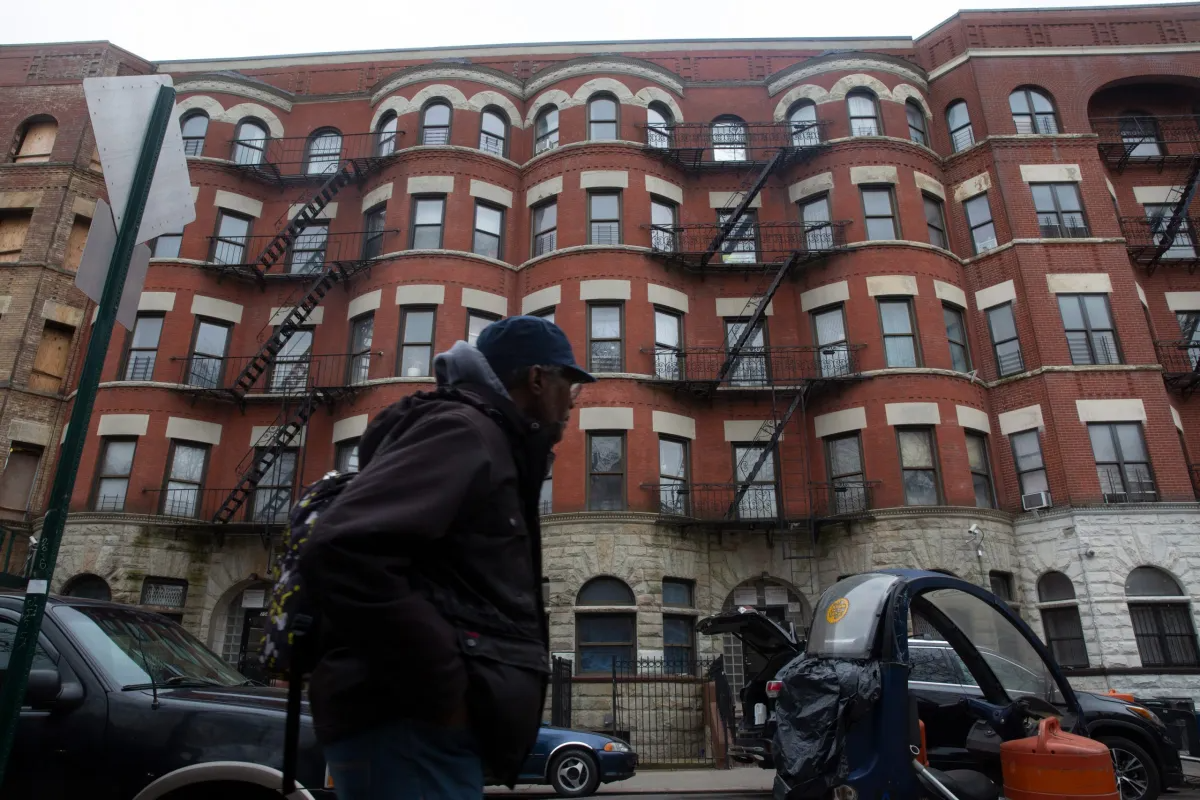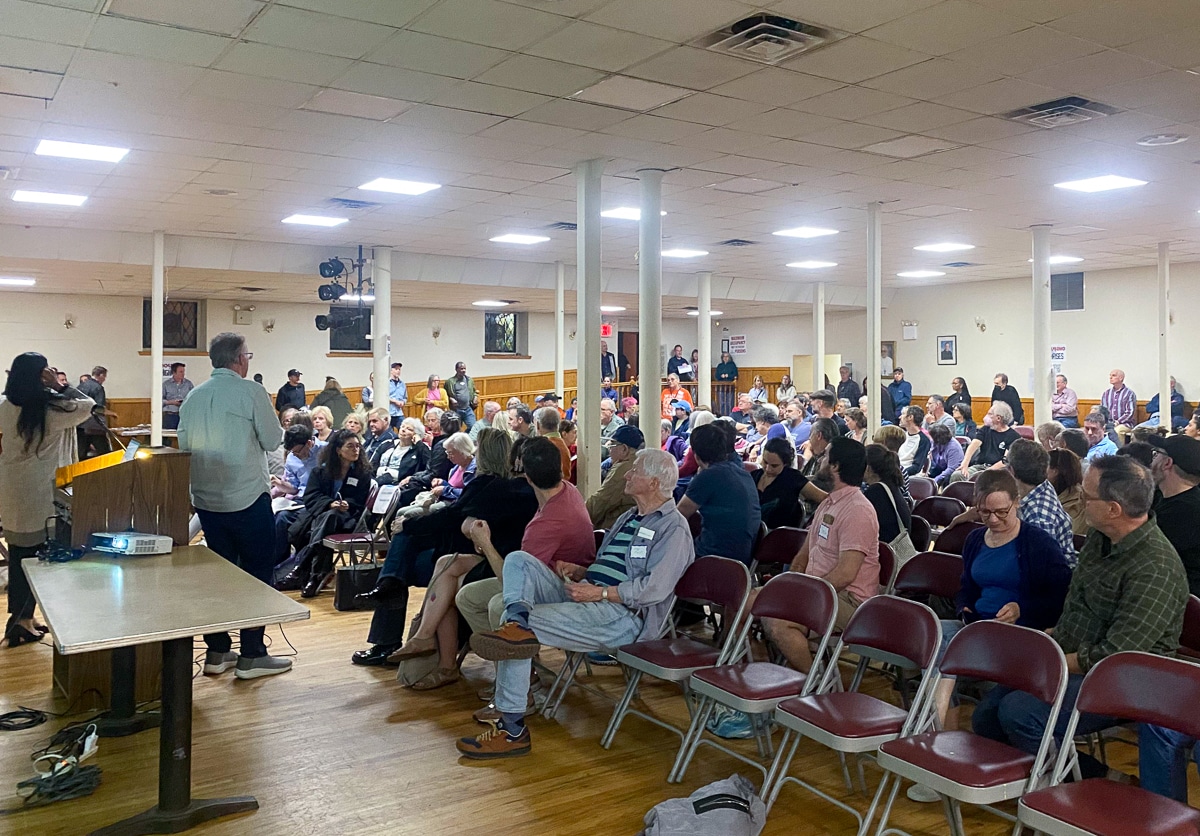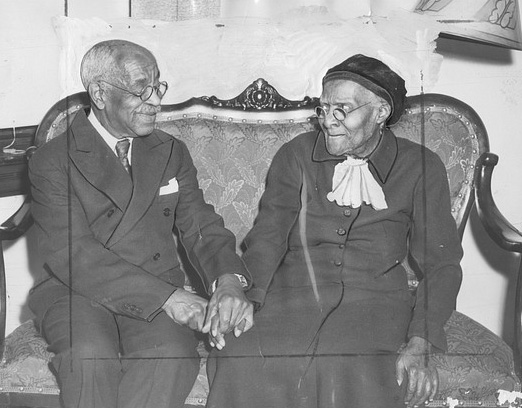Walkabout: Mr. See’s Elevator and Other Uplifting Topics, Part 2
Read Part 1 of this story. Last time we met Mr. Alonzo Bertram See, known as A.B. to friends and foes alike, a Clinton Hill man who made his fortune in the elevator business. He was a one time employee, then business rival to the Otis Elevator family, with both companies supplying the nation with…

Read Part 1 of this story.
Last time we met Mr. Alonzo Bertram See, known as A.B. to friends and foes alike, a Clinton Hill man who made his fortune in the elevator business. He was a one time employee, then business rival to the Otis Elevator family, with both companies supplying the nation with passenger and freight elevators at a time of unprecedented growth in buildings over four stories in height.
The turn of the 20th century was the dawn of the skyscraper age, and elevators were as necessary as electricity, plumbing and ventilation. Part One of our story is here. The A.B. See Electric Elevator Company was making millions, and by 1922, A.B. was rich and comfortable enough to turn his attentions to social concerns. Right outside his windows, the world was changing in ways he did not approve of.
He had issues with the education of women. He didn’t like it. On Nov. 23, 1922, he sent an excoriating letter to the president of nearby Adelphi College, who had sent him, and presumably every other wealthy Clinton Hill resident, a letter seeking funds for their new campus expansion project. Most of his neighbors either sent a donation or ignored it, but A.B. was not satisfied with that. He had to take the opportunity to opine.
“If I had my way, I would burn all the women’s colleges in the country,” he told Adelphi’s president. In a terse letter spelling out the faults of women’s education, which were many, he ended his missive thusly: “Nothing could be better for the girls who are now in the colleges to be taken out of the colleges and put to hard manual labor for at least a year so that there might be put into their heads some little trace of sense.”
With his express and pleased permission, the letter was sent to the newspapers, and eventually reprinted in every corner of the country. It went viral. Comments came in to every editorial board that printed it, and the majority of the people thought Mr. See was unhinged. One reader from New York said, “A.B. See’s mind must travel along a single track as unswervingly as his elevator shafts.” Educators, women’s groups, business people: the army of people who couldn’t believe he would say that were lined up against him. Old A.B. loved it. It turned out he was an attention hound of the first order.
Having opined on women’s education, he turned his sour sights on the 19th Amendment, which granted women the right to vote in 1920. He hated that, too, and declared that voting women had ruined the country and were not smart enough to vote correctly. In 1923, in a letter to the head of the Pennsylvania Railroad, he said, “Your Mr. Atterbury went before some women in Philadelphia and besought them to save the railroad.
Does Mr. Atterbury not know that women average about five ounces less brain matter than the men, and the part they lack is the reasoning capacity? Does he not know that if the world had to depend on the inventive or reasoning faculty of women, men would still be sleeping upon the plains?”
Warming to his subject, A.B. continued. “Does he not know that women do not go into politics from a lofty patriotic motive, but go into politics to either get their names in the newspapers, or to vent their spleen against someone? There are few sadder sights than to see women hobbling on high heel shoes up to their legislative bodies, dressed so as to show their bosoms and their bunions while they clamor for the passage of laws, the purport and effect of which they have not the mental capacity to even faintly comprehend.”
The outrage over those comments was equally vociferous, swift and sharp. One woman challenged A.B. to a debate. He brushed her off saying, “I never discuss anything logical with women. They can talk straight for about five minutes, and then they go off the handle. They haven’t got the reasoning power a man has, and I wouldn’t think of debating with any woman on any subject.”
Yet another woman, who wrote into the New York Times, thought the old misogynist had a few good points. Women, she said, should be at home, tending the home and raising families, not going out into the man’s ugly world of politics. This woman, who called herself Rachel, said, “The way to build up our country, and make it a power amongst our nations is to elevate our best, noblest and wisest men to office and sustain them in it.
To this end it is also the privilege of every woman within her own home to work by training her family in those fundamental principles that make of them men and women of high mental, moral and spiritual characters.” And here you probably thought the battle for gender equality only started in the 1960s.
Anyway, Alonzo See was now a celebrity. Newspaper editors looked forward to his letters and speeches; they were incendiary and sold papers. Alonzo was happy to oblige, finding an outlet for all of his opinions on education, women and just about everything else. Schools irritated him almost as much as women did; in fact, schools were half the reason women were the way they were, as far as he was concerned.
He put all of his opinions together in a book called “Schools,” which was a compendium and a manifesto containing the wit and wisdom of Alonzo B. See. In it he says, “There should be an end to all of this talk about the goodness of women. It does no good, and is not true. Men are better than women. Men are more truthful than women. Men are more honest than women. Men are not quarrelsome like women.”
He had nothing but distain for the Flapper Generation, which was flaunting its sexuality, its freedom, its jungle music and disrespectful ways in his face at every turn. The Flapper girls were just too much. He advocated that “the fathers should watch over their girls, make them obey absolutely and make the girls wait on them in every particular… that is, bring them their slippers, get their hats and coats and wait on them in every other way.” Hmmm.
Schools were not teaching anything useful, as far as he was concerned. Latin was a waste of time, and shouldn’t be taught in schools anymore. “Dead languages are dead,” he said. In fact, all foreign languages were a waste of time, because everyone else in the world was learning English.
He also thought vocational education should be taught on the job, not in schools, and in a letter published in 1926, he said, “the schools injure the eyes, the nerves and the whole physical natures of the children, causing some to succumb to diseases they could have withstood if their health had not been undermined in the schools.” If he were running the schools, they would only be teaching the alphabet, spelling, penmanship, arithmetic, history, geography and English.
In 1930, Alonzo See retired, and left the running of his company to his only child, his son Alva. He then sat back and got ready to have more fun. Some of A.B. See’s comments were so outrageous, it seemed impossible that he actually believed some of the things he spouted. He was the most congenial of men, everyone said, whose sharp tongue was channeled into his poison pen.
A reporter from the Times went to visit, and found Mr. See enjoying his fame immensely. He told the reporter he didn’t hate women, he loved women, and his female employees and friends loved him for the old curmudgeon he was. He said he didn’t even have time clocks in his factories, his workers were all happy, he was a genial and generous employer who just wanted to shake things up a bit.
He thought a lot of women whined too much about equality, and he was serious in hoping that men would come back to their senses, and take the vote back. Was he going to found an organization to do anything about it? No, he was having too much fun writing letters. “What I write is the truth,” he said, “and everyone knows it.” That was why he founded the Bertram Book Corporation, so he could publish his books, and do what he wanted. And that was that.
Editors and agitators alike awaited A.B. See’s missives, so it came as a deep disappointment when one day in 1936 he announced that he had changed his mind about women. He hosted a large dinner at his house on Clinton Avenue in April of ’36.
Sitting around his table were fifteen women who had achieved great prominence in businesses and endeavors outside of the home. He was the only man at the table. His beloved wife had died in 1929. When reminded of his past statements, he only said, “Well, that is all changed now. Up to tonight I still had that same opinion. But I changed it tonight.” The canny old curmudgeon had his last laugh.
Perhaps he got tired of being the country’s most famous woman hater and dinosaur. Maybe he really had a St. Paulian “Road to Damascus” encounter with Truth. Maybe he never believed a word he said. We probably won’t know. We do know one thing: His last laugh was his last public laugh. Now that he wasn’t making outrageous comments, the newspapers weren’t coming around, and no one cared to hear what he had to say anymore. His fifteen minutes were up. He couldn’t be happier.
Alonzo See ran his very successful company for 47 years. The common stock stayed in his family, but the preferred stock went to his employees. In July of 1937, at a meeting of family and shareholders, they all voted to sell the company to the Westinghouse Electric and Manufacturing Company. Everyone made out like bandits, and all of the company’s employees kept their jobs, and many got raises. During the end of the Depression, that was gold, in more ways than one.
A.B. was truly retired now, and settled back in peace. He died at the ripe old age of 94 in 1941. His funeral was at his home at 373 Clinton Avenue, and he was buried in Green-Wood Cemetery. His son, Alva, and his family had long before moved to Greenwich, Conn., and his wife was dead. The house would soon be torn down for the Clinton Avenue Houses, built for Navy Yard soldiers and their families.
A.B.’s monument at Green-Wood is a large, ornate marble sculpture that still catches the attention in a cemetery with a lot of attention grabbing monuments. At the center is a seated life-sized figure of a sorrowful woman draped in flowing robes, contemplating death and loss.
Carved benches flank the center of the monument, places of rest and respite. She probably misses the old curmudgeon, a man who lived life on his own terms, said whatever he wanted to, made up a whole lot of mess and enjoyed the chaos that followed, and underneath it all, was a loving husband and parent, generous employer and smart businessman. R.I.P., A.B. See.
(Photograph of Alonzo See grave at Green-Wood Cemetery. Green-Wood.com)









What's Your Take? Leave a Comment